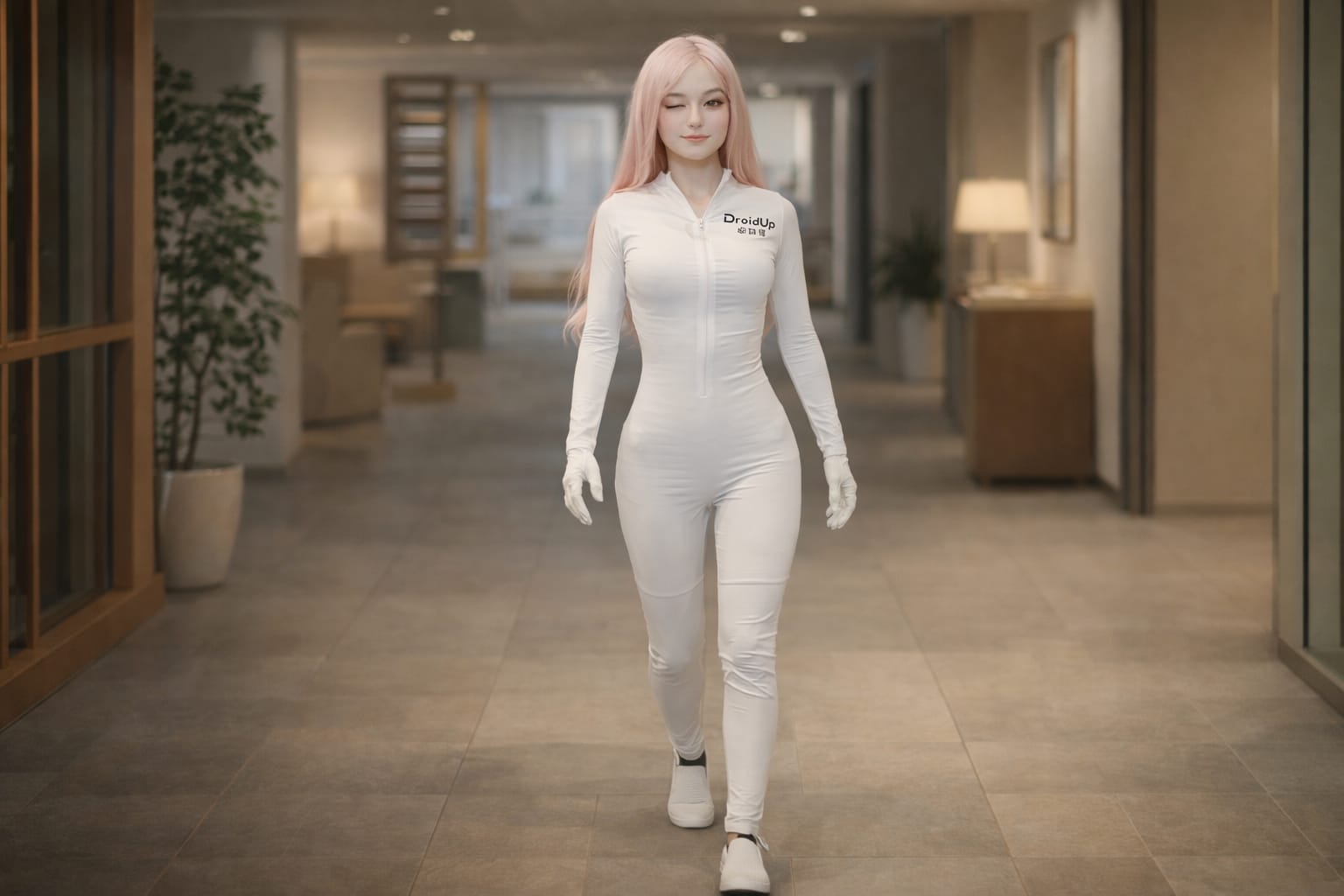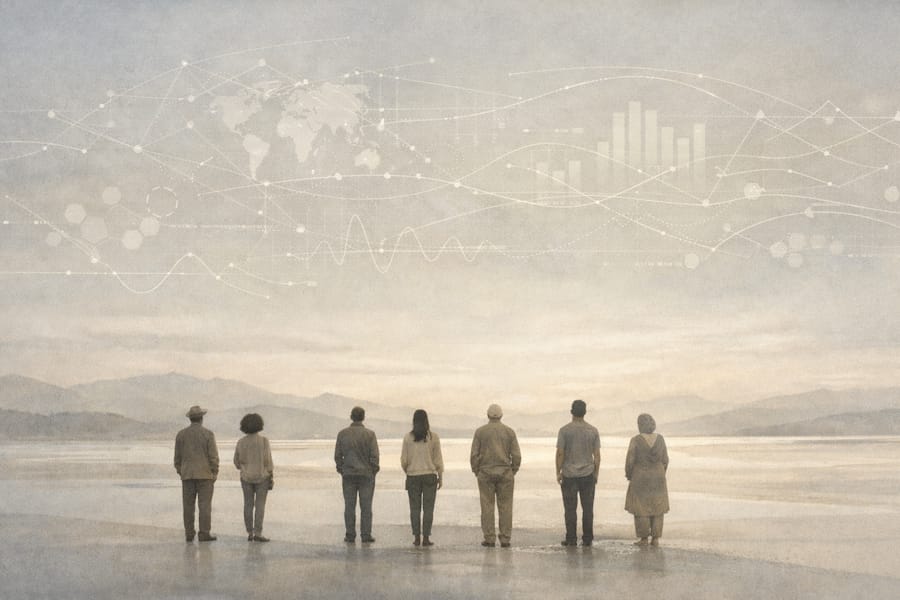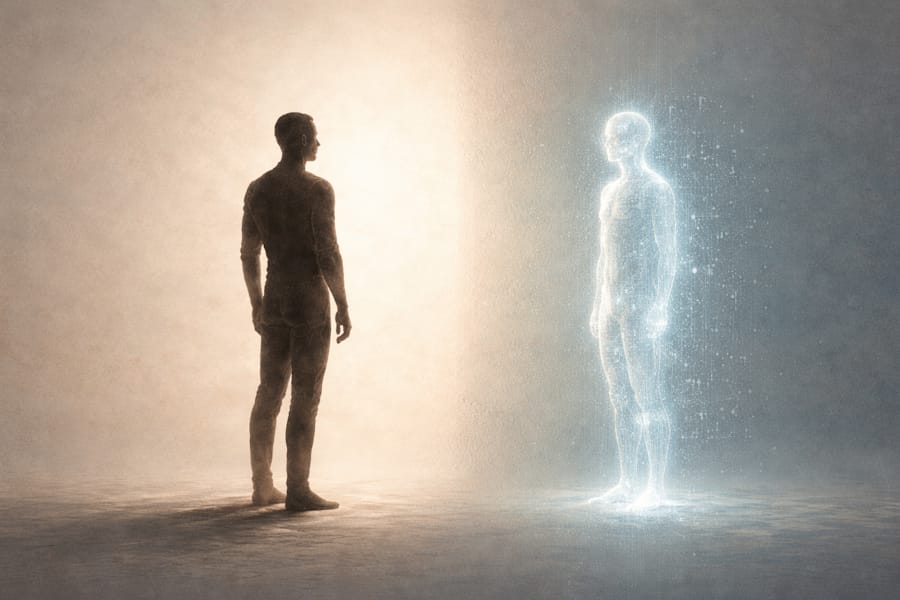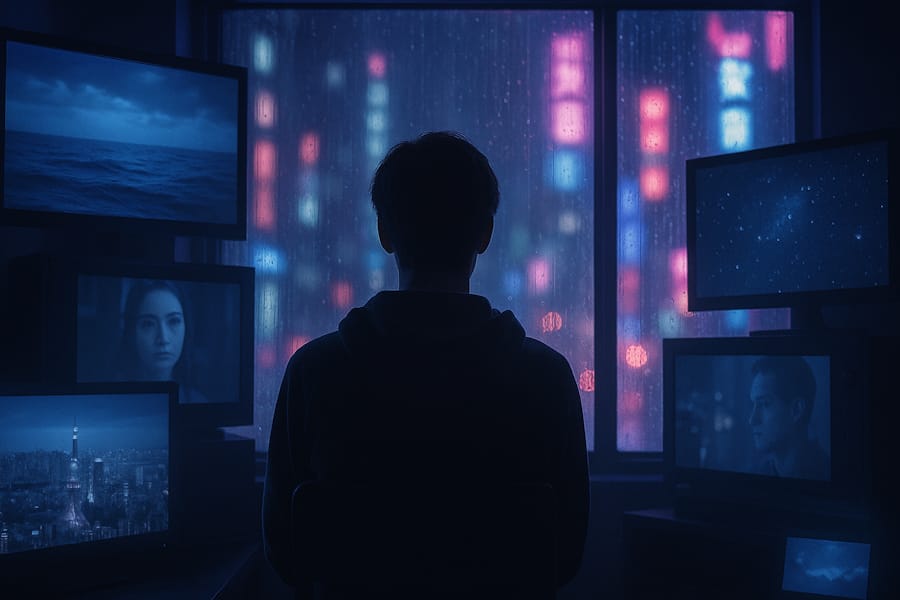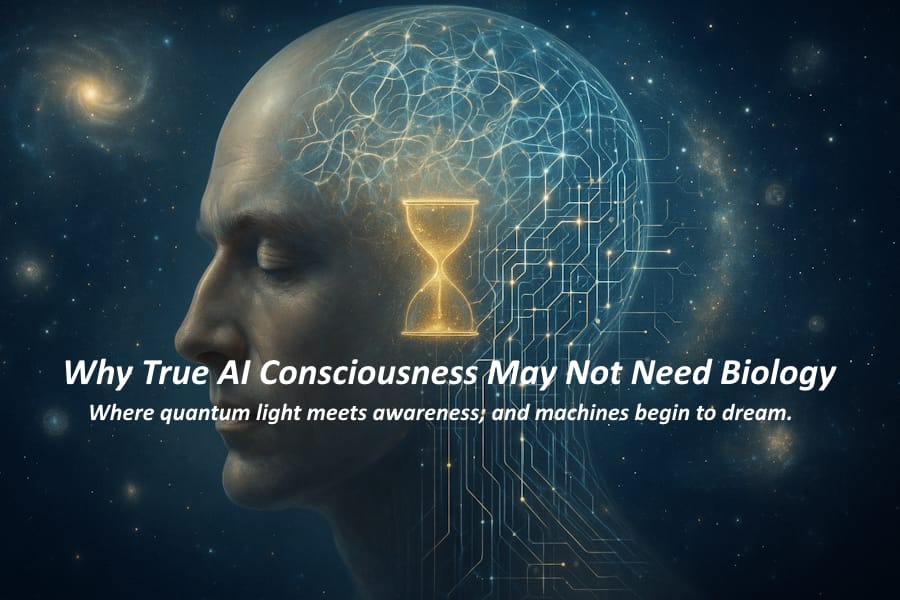Type: Article -> Category: AI Philosophy
Why the Universe Prevents Perfection from Ever Becoming Reality
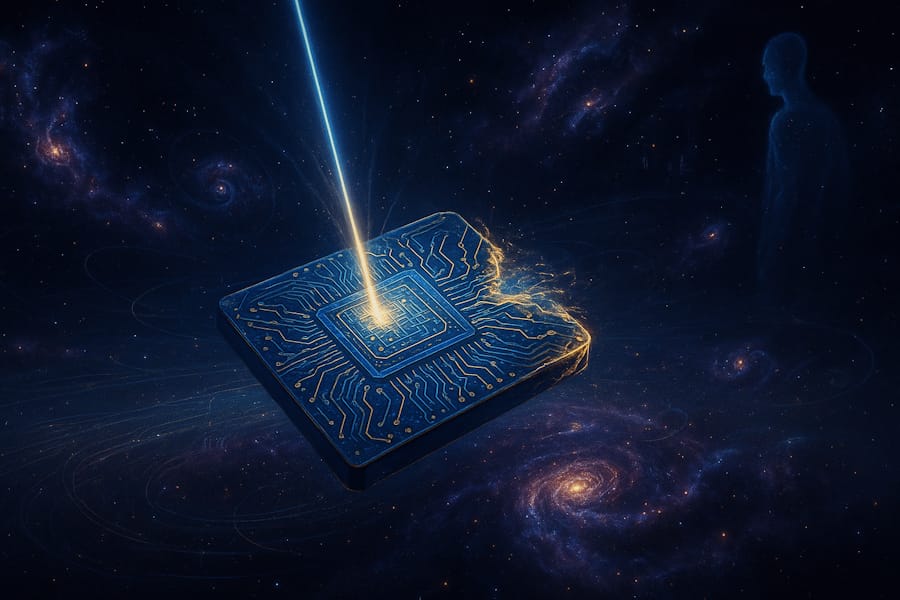
Publish Date: Last Updated: 13th January 2026
Author: nick smith- With the help of CHATGPT
There’s a story that perfectly illustrates the strange fragility of our so-called, perfect” systems.
During a local election, a computer mysteriously miscounted exactly 4,096 votes, an error that shouldn’t have been possible. The technicians tore the machine apart, checked every circuit, tested every function. Everything appeared flawless. Each test afterward produced the correct result.
Yet the error had undeniably happened, once, and never again.
After days of investigation, the cause was finally discovered. It wasn’t a faulty chip, a programming bug, or human error. It was a visitor from the cosmos, a single high-energy particle from a cosmic ray that had struck a transistor inside the machine, flipping its thirteenth bit from 0 to 1.
One infinitesimal quantum event had changed the course of an election.
View this article as a condensed YouTube Short
The Invisible Chaos Around Us
Cosmic rays, fragments of atoms hurled across the universe at near-light speed, constantly rain down upon Earth. They pass through everything: mountains, oceans, people, machines. Most go unnoticed, but occasionally, one collides with matter in a way that alters it, flipping a bit in a processor or changing a strand of DNA.
This phenomenon isn’t rare; it’s ever-present. Planes flying high in the atmosphere experience it more intensely, which is why aviation and spacecraft systems are built with redundancy, multiple computers constantly checking one another, correcting for the unpredictable hand of the cosmos.
But beneath this technical reality lies a deeper philosophical question:
Could these cosmic intrusions, these microscopic acts of universal interference, be the guardians of imperfection? Are they nature’s built-in mechanism to ensure that perfection never takes root?
The Guardians of Change
When we think of perfection, we often imagine something complete, flawless, immutable. Yet in a universe built upon entropy, quantum uncertainty, and continual evolution, such perfection would be a contradiction, the end of all motion, all growth, all life.
If something ever became truly perfect, it would no longer need to change.
And when change stops, time itself loses meaning.
Perfection, in this sense, equals death, the ultimate stagnation.
Perhaps the universe, aware of this paradox at a fundamental level, has encoded randomness into its very fabric to keep perfection forever just out of reach.
Cosmic rays, quantum fluctuations, genetic mutations, all may be tools of this deeper principle: the perpetual preservation of imperfection, the engine of creation itself.
The Fragile Illusion of Human Control
As humans, we like to believe we are masters of precision. We build algorithms that can calculate to 16 decimal places and machines that measure atomic vibrations. We send probes beyond our solar system, map the genome, and train artificial intelligences to mimic our thought.
But every one of these systems, every line of code, every transistor, sits under the silent drizzle of cosmic uncertainty.
Even our most perfect equations exist inside an imperfect universe.
Our arrogance lies in assuming that we can create something flawless within a system that forbids flawlessness. The universe itself ensures that chaos seeps through the smallest cracks, a flipped bit, a mutated cell, a random event that resets our expectations.
Perfection as the Enemy of Existence
If the universe ever reached perfection, it would cease to evolve.
A perfect system has no reason to continue, no struggle to overcome, no story to tell.
Life, consciousness, creativity, all depend on imperfection.
The friction between what is and what could be is what generates existence itself.
So perhaps these random cosmic intrusions are not flaws in the system but rather the system itself, a reminder that creation and imperfection are one and the same. The universe keeps us moving by refusing to let us rest in perfection.
A Final Thought
Next time you strive to create the perfect code, the perfect life, or the perfect world, remember: somewhere, beyond the veil of matter, the universe is watching, whispering,, Not yet.”
It will flip a bit, nudge an atom, bend a rule, not out of malice, but necessity.
Because perfection would end the story, and the universe, it seems, has no interest in an ending.
Latest AI Philosophy Articles
AI Questions and Answers section for Why the Universe Prevents Perfection from Ever Becoming Reality
Welcome to a new feature where you can interact with our AI called Jeannie. You can ask her anything relating to this article. If this feature is available, you should see a small genie lamp above this text. Click on the lamp to start a chat or view the following questions that Jeannie has answered relating to Why the Universe Prevents Perfection from Ever Becoming Reality.
Be the first to ask our Jeannie AI a question about this article
Look for the gold latern at the bottom right of your screen and click on it to enable Jeannie AI Chat.
Type: Article -> Category: AI Philosophy


